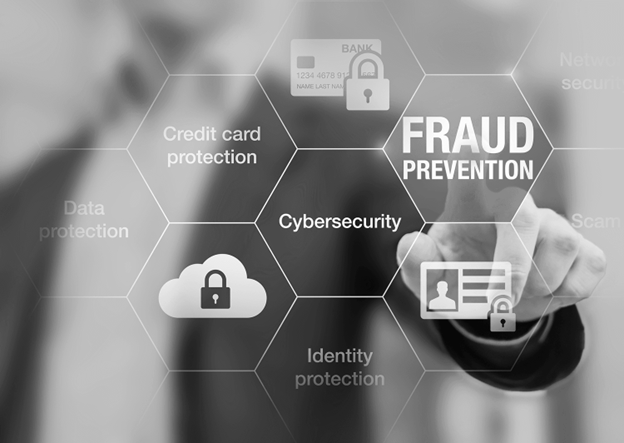In today’s increasingly interconnected and digital world, fraud poses one of the most significant threats to businesses of all sizes and sectors. From fintech companies handling sensitive financial data to small brick-and-mortar shops, the need for a robust Fraud Prevention and Detection framework is not just prudent—it’s essential.
Fraud can result in significant financial losses, regulatory penalties, reputational damage, and the erosion of customer trust. Yet, with the right systems in place, businesses can proactively identify red flags, implement controls, and protect themselves, their customers, and their stakeholders.
Let’s explore why fraud prevention and detection is critical for various industries, along with the relevant federal regulations that underscore the legal and compliance imperatives.
Fintech Companies
Why It Matters:
Fintech companies sit at the intersection of finance and technology—two areas ripe for exploitation by cybercriminals. These organizations often deal with vast amounts of customer data, digital transactions, and regulatory oversight. Fraud here can involve identity theft, account takeovers, synthetic identity fraud, phishing attacks, and more.
Key Risks:
- Real-time payment fraud
- Credential stuffing
- Regulatory non-compliance
Relevant Regulations:
- Bank Secrecy Act (BSA) and Anti-Money Laundering (AML) rules: Require monitoring for suspicious activity and filing SARs (Suspicious Activity Reports).
- Gramm-Leach-Bliley Act (GLBA): Mandates that financial institutions safeguard sensitive data.
- Federal Trade Commission (FTC) Red Flags Rule: Requires programs to detect, prevent, and mitigate identity theft in covered accounts.
- Dodd-Frank Act: Increases transparency and holds financial firms accountable for risk management.
Recommended Framework Features:
- AI-driven anomaly detection
- Multi-factor authentication (MFA)
- Continuous transaction monitoring
- Incident response planning
E-Commerce & Physical Retail Businesses
Why It Matters:
Retailers—especially those selling products online—are prime targets for credit card fraud, chargebacks, gift card scams, and return fraud. Physical stores face their own risks, such as employee theft and point-of-sale fraud.
Key Risks:
- Payment fraud
- Inventory manipulation
- Phishing via customer service channels
Relevant Regulations:
- PCI DSS (Payment Card Industry Data Security Standard): Sets data security standards for all companies that process, store, or transmit credit card information.
- FTC Act – Section 5: Prohibits unfair or deceptive acts or practices, including fraudulent marketing or billing.
Recommended Framework Features:
- End-to-end encryption for payment systems
- Fraud scoring models and rules engines
- Employee training on fraud schemes
- Video surveillance and audit trails for physical stores
Law Firms
Why It Matters:
Law firms handle sensitive client data, escrow accounts, intellectual property, and financial transactions—making them high-value targets for fraudsters. Common schemes include business email compromise (BEC), wire fraud, and invoice scams.
Key Risks:
- Client impersonation
- Wire fraud in real estate closings
- Unauthorized data access
Relevant Regulations & Guidance:
- ABA Model Rules of Professional Conduct (Rules 1.1, 1.6, 5.1, and 5.3): Emphasize the duty of competence, confidentiality, and proper supervision—implying the need for cybersecurity and fraud prevention measures.
- GLBA (for firms acting as financial institutions in certain transactions)
- FTC Safeguards Rule (if applicable): Mandates safeguards for handling consumer information.
Recommended Framework Features:
- Secure client communication portals
- Verification procedures for financial instructions
- Cybersecurity audits and penetration testing
- Data encryption and access controls
Small Businesses
Why It Matters:
Small businesses often believe they are too small to be targeted. Unfortunately, this misconception makes them especially vulnerable. Many small businesses lack dedicated compliance or IT teams, making them easy targets for fraud schemes ranging from vendor fraud to payroll and billing manipulation.
Key Risks:
- Internal fraud from employees
- Check tampering
- Phishing and malware
Relevant Regulations:
- Sarbanes-Oxley Act (SOX): While not all small businesses are directly subject to SOX, it sets a gold standard for internal controls that small businesses can adapt.
- IRS and DOL guidelines: Misclassification of employees and payroll fraud can lead to penalties.
- FTC’s Business Guidance: Encourages small businesses to implement data security basics to prevent fraud.
Recommended Framework Features:
- Segregation of duties (SoD)
- Dual controls for payments
- Regular reconciliation of accounts
- Fraud awareness training for all staff
Final Thoughts
Fraud is an evolving threat—its complexity grows as technology advances and economic conditions shift. Regardless of industry, establishing a proactive Fraud Prevention and Detection framework is a business imperative.
Each organization, whether a fintech disruptor or a family-owned retail shop, should:
- Conduct a comprehensive fraud risk assessment annually
- Develop an incident response and escalation protocol
- Train staff at all levels on fraud schemes and reporting mechanisms
- Use technology wisely—automation and AI can enhance both detection and prevention
Failing to prepare means preparing to fail—especially in the high-stakes environment of today’s regulatory and digital landscapes. With thoughtful planning, strong internal controls, and a culture of vigilance, businesses can safeguard their operations and maintain the trust of those they serve.

